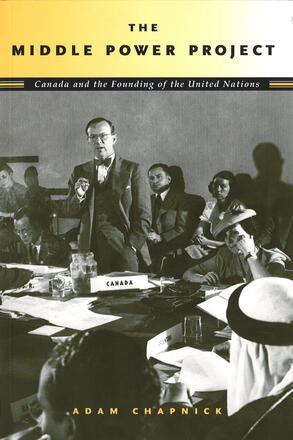
The Middle Power Project
Canada and the Founding of the United Nations
Based on materials not previously available to Canadian scholars, The Middle Power Project presents a critical reassessment of the traditional and widely accepted account of Canada’s role and interests in the formation of the United Nations.
La description
The Middle Power Project describes a defining period of Canadian and international history. During the Second World War, Canada transformed itself from British dominion to self-proclaimed middle power. It became an active, enthusiastic, and idealistic participant in the creation of one of the longest lasting global institutions of recent times — the United Nations. This was, in many historians’ opinions, the beginning of a golden age in Canadian diplomacy.
Récompenses
- Short-listed, Dafoe Book Prize, J.W. Dafoe Foundation 2005
Reviews
This book provokes thought. The historical research is tremendously impressive. Having perpetrated a number of books on the UN, I am ashamed of how little I knew about Canada's early role therein. I am grateful to Adam Chapnick for teaching me how, why and where Canadian influence over the UN Charter can be discerned.
- David Malone
Chapnick's is a timely book . .. [this] book offers an important critique of Canada's early contributions to the founding of the United Nations.
- Andrew S. Thompson, Centre for International Governance Innovation (CIGI)
Chapnick's focus on Canada's role in the founding of the United Nations (UN) in the final years of the Second World War is both unique and extremely valuable . .. This book enhances our understanding of Canada's foreign relations in this formative period . .. This is an impressive book, exhaustively researched and convincingly argued. It significantly revises our understanding of Canada's role in the creation of the United Nations and it should be an indispensable resource for anyone interested in Canadian history.
- Robin S. Gendron, Department of History, Dalhousie University